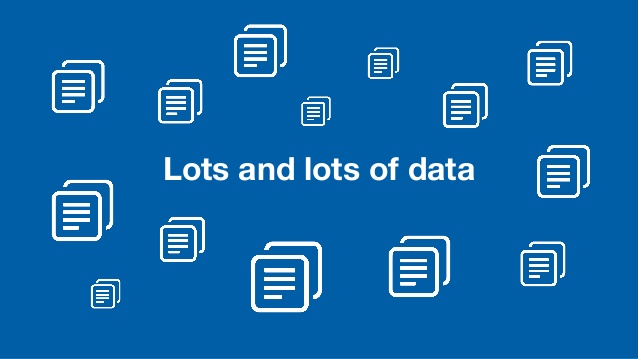Consuming Data
0 comment
If you read this blog regularly, you’ve probably figured out that I love data. That includes turning students on to the value of data—of collecting the right data so they actually use it; understanding how to read, evaluate, consume and use, the data that others collect and report out; making decisions based on data rather than feelings. Students remind me constantly that too few are taught how to be good consumers of data. Thus, I periodically take it upon myself to share tidbits of interesting data that should inform our work.

As the daughter of two writers, I came out of the womb knowing the power of words. Here is yet another confirmation of that important understanding. According to research done by the US National Bureau of Economic Research, reviewers in a blind appraisal process of almost 7000 research proposals submitted to the Bill and Melinda Gates Foundation gave lower scores to proposals written by women than by men. (The “proposal” was a two-page online application; the awards are between $100,000 and $1 million to work on issues of global health).
The reason for this outcome? Male writers scored better because they used less specific language than women. And, it isn’t as if the more broadly written proposals produce better results – they don’t. But what has been hypothesized as happening is what the broader language connotes versus the narrower words: the broader, more sweeping words appear more confident—might we say boastful—suggesting the promise of better results, while the narrower words suggest a lesser result and impact. The lesson: be arrogant in your proposals—but don’t lie.
Not only must we be careful with the language we use if we want to garner supporters, so, too, must we be mindful of the tools we use. One of the items that came up on multiple lists of the 2019 trends for nonprofits—those lists that get published in December of the preceding year and January of the current year—was the growing use of virtual reality. What came out last week was new research that shows that VR decreases what I will refer to as long-term compassion, what is officially termed cognitive empathy—the ability to imagine the suffering of others.
Reviewing 42 earlier studies that looked at the relationship between virtual reality and the development of empathy, this group of researchers from several different academic institutions found that virtual reality builds emotional empathy—compassion for what is immediately before a person—but there is no carryover effect. Once the headgear is removed, the emotional empathy doesn’t convert to the long-term cognitive empathy, and it is the latter that so often fuels donations. So, before investing in expensive equipment, be clear if, how and why you want to weave virtual reality into your fundraising toolbox.
One group of donors who has something—be it cognitive empathy or simply a philanthropy gene—are entrepreneurs. According to a recent study by Fidelity Charitable (consider the source), entrepreneurs of all generations are giving people. Median annual giving by entrepreneurs is 50% higher than non-entrepreneurs: $3.6 thousand versus $2.4 thousand, respectively.
Entrepreneurs are more likely to volunteer, as well: 66% of entrepreneurs volunteer at least two or more hours a month, compared to 55% of non-entrepreneurs who do the same. Entrepreneurs are more likely to self-identify as philanthropists, more likely to talk to an advisor about giving and more likely to be planning on leaving a legacy gift.
Millennial entrepreneurs put Generation Xers and Boomers to shame. Their median annual giving to nonprofits is more than double—at $13,654—than Generation Xers’ $6,200 and Boomers’ $6,192. They are also more likely to have at least one corporate giving program in their company (85%, 58% and 57%, respectively).
Lastly, as a kind of an aside, the top value millennial entrepreneur would like to pass on the next generation? Generosity. Generation Xers said empathy; Boomers said taking care of family. Let’s hear it for Millennials.
The opinions expressed in Nonprofit University Blog are those of writer and do not necessarily reflect the opinion of La Salle University or any other institution or individual.
